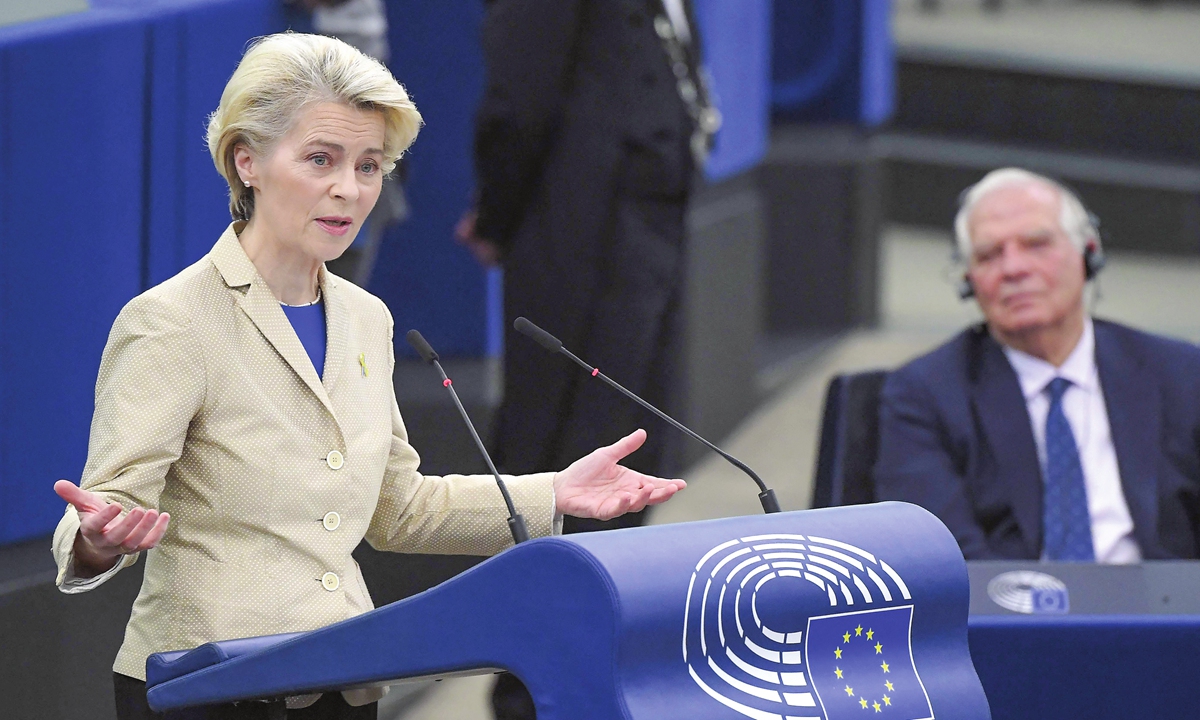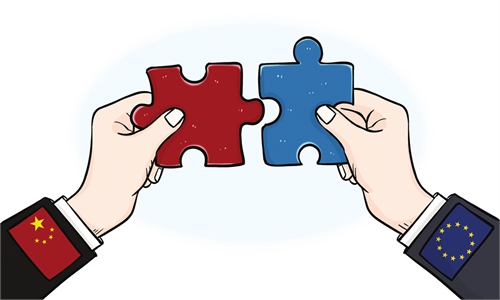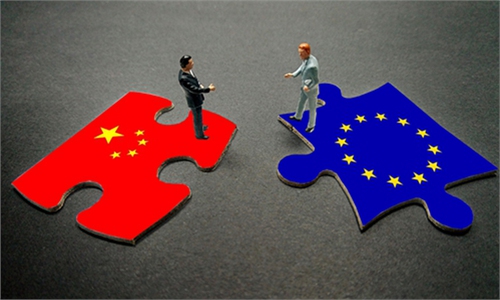Von der Leyen elected to second term as EU chief, faces challenges ahead
Confrontation ‘not a pragmatic option’ for Brussels in China ties

European Commission President Ursula von der Leyen speaks during a debate on the results of the Russia-Ukraine conflict, as part of a plenary session at the European Parliament in Strasbourg, eastern France, on February 15, 2023. Photo:VCG
Lawmakers of the European Parliament on Thursday voted Ursula von der Leyen to a second five-year term as president of the EU Commission. Experts said the reelection shows the EU's need for stability and continuity as Europe faces multiple challenges and even crises. Despite maintaining a tough approach to China in her latest executive to-do list, Europe may also seek to increase its pragmatic and opportunistic engagement with China in the future, especially when considering the uncertainty as result of the outcome from the US presidential election, which may also pose challenges to the transatlantic relationship in the fields of security, economy and trade.
According to media reports, von der Leyen, who leads the center-right European People's Party, won 401 votes, well ahead the 361 votes threshold to secure the majority.
There were 284 votes in opposition, 15 abstentions and seven votes declared invalid, the Politico reported.
Representatives from nationalist, nativist and hard-liner anti-migrant parties, including representatives aligned with Prime Minister Giorgia Meloni of Italy, voted against her.
Von der Leyen's reelection came after a June election shifted the parliament to the right wing. Politico described the victory as a pushback from Centrist Europe. However, the media outlet also said, "It will be an extremely difficult five years" for von der Leyen, citing a senior EU official.
Besides growing nationalist far right in Europe distracting domestic governments, Europe indeed faced with challenges. According to European media reports, if Trump returns to the White House, he would largely withdraw support from Ukraine and downgrade investment in NATO, which means Europe has to "stand more fully on its own." An economic clash between the US and EU over Washington's possible US protectionist tariffs is also likely, according to analysis.
Ahead of the vote on Thursday, von der Leyen released a 31-page policy proposal, setting out her priorities if she won another five years. She stressed investment in EU's green and digital transition, and also proposed setting up a "European Defense Union" and appointing a commissioner for defense, an air defense system and cyber protection measures in the whole of Europe. In the face of the rise of the far right, the EU chief said "it is essential that the democratic center in Europe holds."
Wang Yiwei, a professor at the School of International Relations at Renmin University of China, said that although von der Leyen is considered pro-American, the EU and the US are also in competition on economy, technology, digital, and artificial intelligence, and the Ukraine crisis, in particular, has caused a lot of European capital to flee to the US.
"The dispute between Europe and the US will be difficult to resolve. Whoever is elected will have to face these challenges," said Wang.
Europe needs the continuity and stability that von der Leyen's re-election brings, Cui Hongjian, a professor from the Academy of Regional and Global Governance under the Beijing Foreign Studies University, told the Global Times on Friday.
The far right in Europe is likely to grow even stronger in member states in the future. If policy stability can be maintained at the EU level, it can hedge against possible uncertainty in member states to a certain extent, Cui noted.
'China card, US card'
Von der Leyen also mentioned China four times in her policy proposal, including hype over China's rising military budget, "aggressive posture and unfair economic competition from China," as well as measures to "deter China from unilaterally changing the status quo by military means" over the Taiwan question.
"Von der Leyen maintained a tough attitude toward China," said Cui, "from her policy proposal we can see that she still places more emphasis on competition and confrontation with China instead of cooperation."
It's also likely that she was courting the next US president with a posture of cooperating with US policy toward China, and proving that Europe's global strategy can be useful for Washington, in exchange for the US going easier on Europe on other issues like tariffs and security, Cui added.
Zhao Junjie, a research fellow at the Chinese Academy of Social Sciences' Institute of European Studies, said that China-EU relations are clearly influenced by the US.
"If the new US administration appears to be seeking a pragmatic exchange of interests with China, the EU may also be inclined to cooperate more with China. But if China-US relations continue to deteriorate, it will also influence Europe to adopt a tougher attitude toward China," Zhao said.
Experts also noted that China-EU relations under von der Leyen's new term will be affected by multiple factors, such as US-Europe relations and the Ukraine crisis.
If Trump is elected, and the concerns mentioned by the European media are materialized, the transatlantic relationship will be troubled, and Europe may show flexibility in its China policy under its tough surface, Zhao said.
When the US-EU relationship in particular is challenging, pursuing a relatively cooperative relationship with China may be a pragmatic option, said the expert.
According to a Reuters report on Tuesday, the European Commission has signaled to Volkswagen and BMW that it may consider lowering tariffs on the two carmakers' imports of China-made EVs.
Echoing Zhao, Wang Yiwei said Europe is currently under the shadow of Trump's possible return. If he is reelected, due to fewer ideological overtones than the Democrats, Europe's China policy may become "less emotional" and may seek to increase its more pragmatic, opportunistic engagement with China.
According to the expert, Europe has always accused China of assisting Russia, but if the new US administration decides to reduce aid to Ukraine and Europe finds that it can't defeat Russia, then Europe's view of China would change, and it may in turn seek to negotiate with Russia through China's influence, said Wang.
In contrast to the EU's one-sided following of the US over the past four years, depending on the result of the US election, Europe could have more flexible room to play the "US card" in front of China and the "China card" in front of the US for more strategic autonomy, Wang said.



